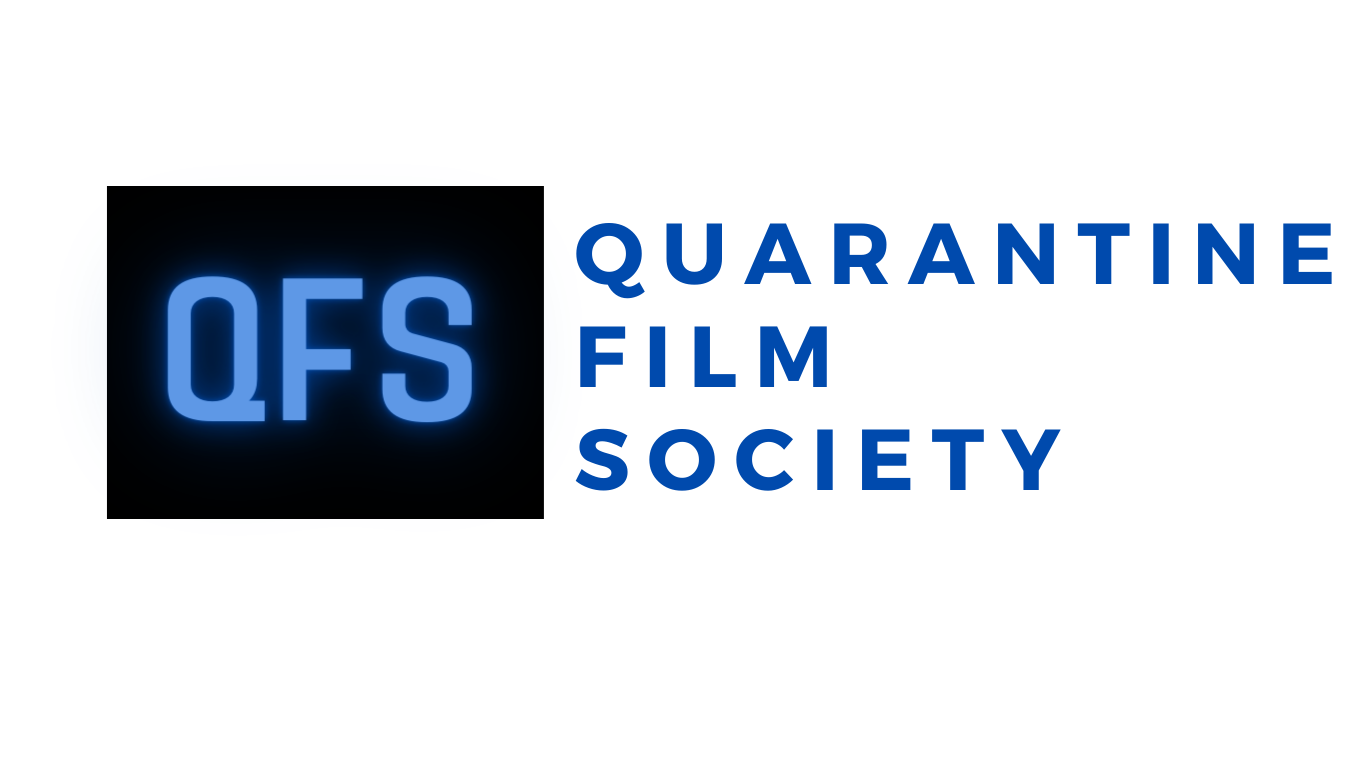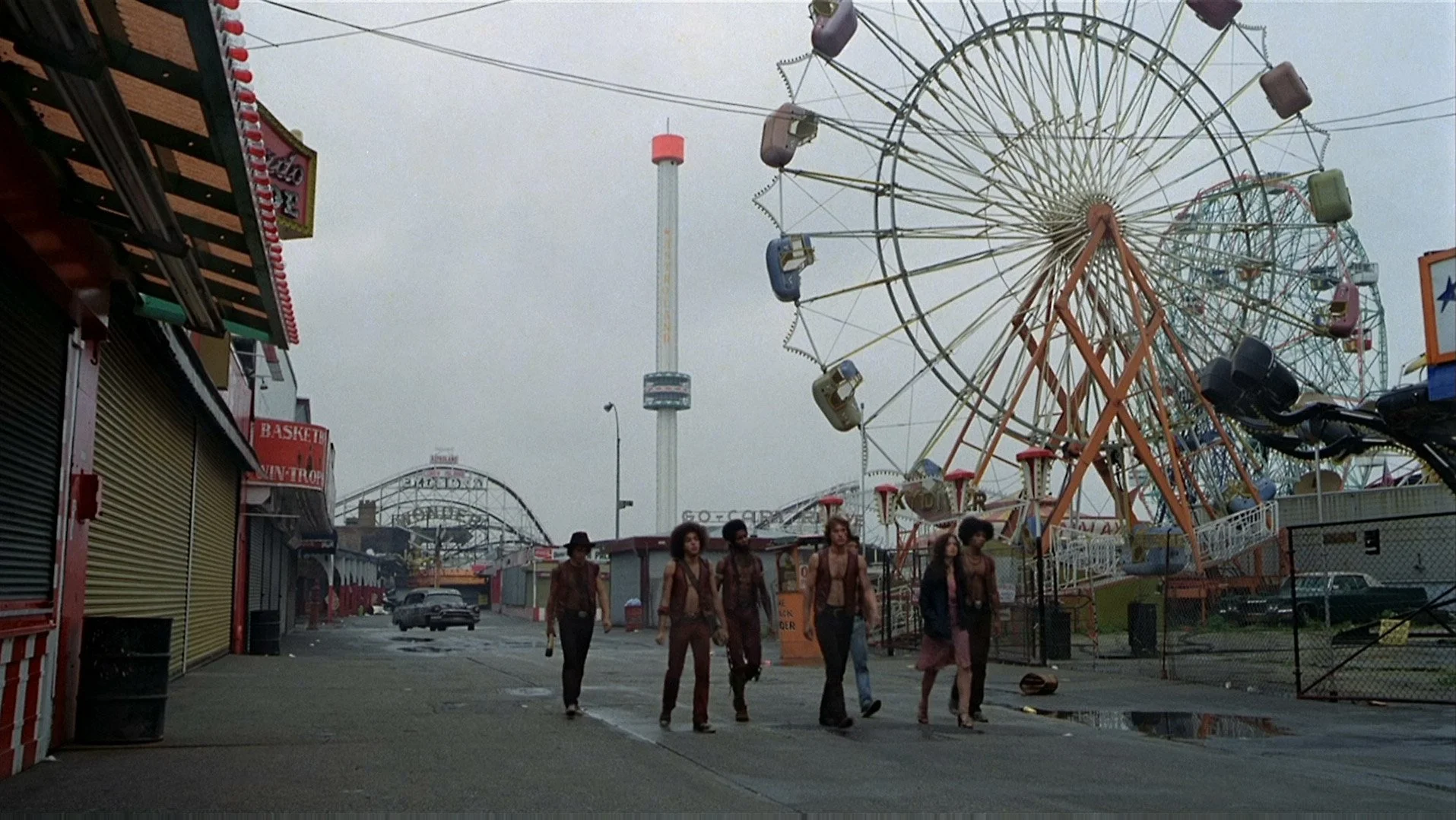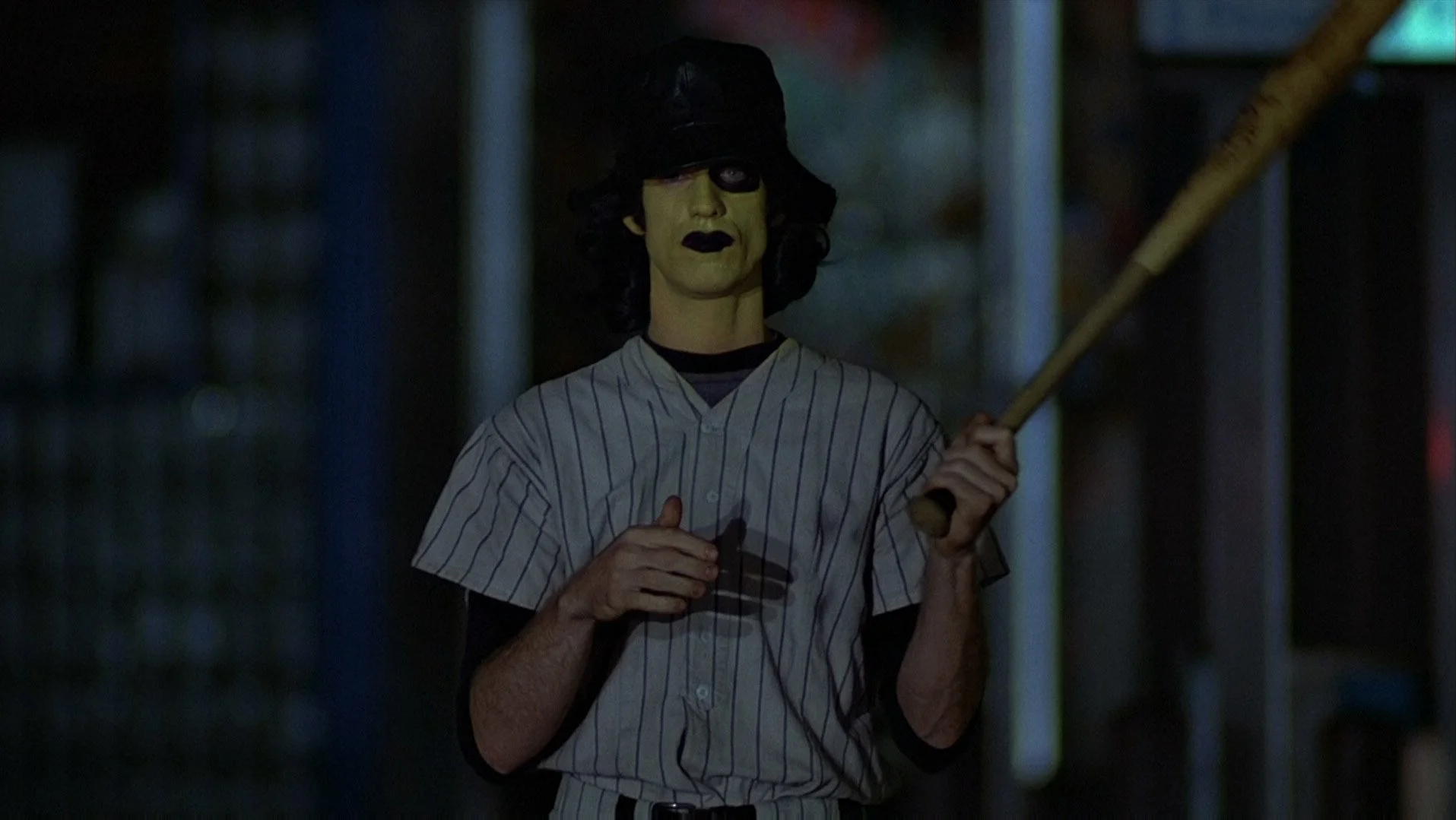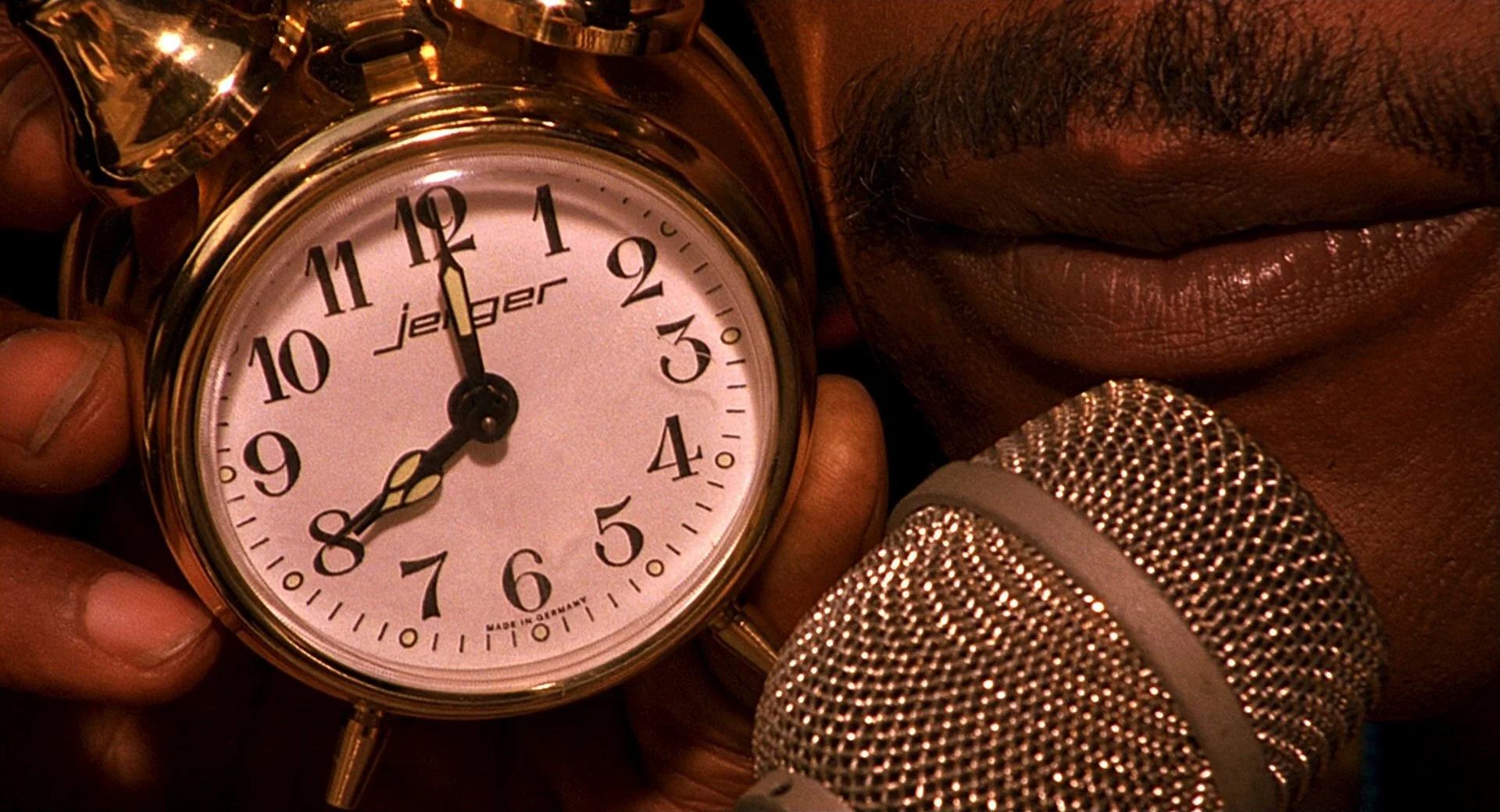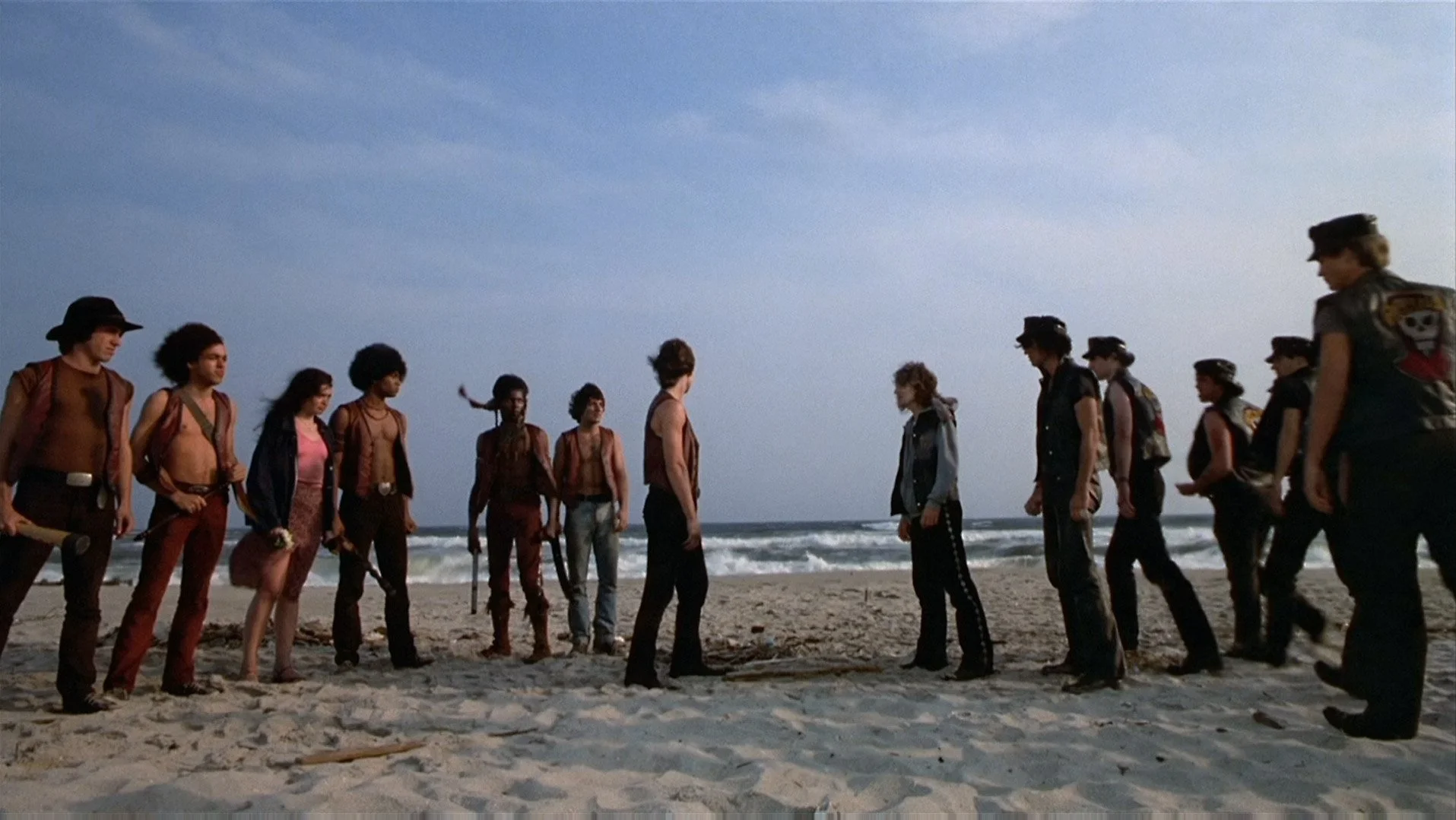The Warriors (1979)
QFS No. 178 - The invitation for June 4, 2025
The Warriors is one in a line of post-apocalyptic New York films, John Carpenter’s Escape from New York (1981, QFS No. 61) being one of the preeminent in the subgenre which we saw a few years ago together. Throw in a little Soylent Green (1976), I Am Legend (2007), Cloverfield (2008), the terrible End of Days (1999) and top it off with this week’s selection and you’ve got yourself the makings of a viable subgenre.
I’ve seen The Warriors before and I count myself as a fan. Is it a great movie? Let me put it this way – it’s a lot of fun. We shall debate its greatness together! The film features one of the great propulsive opening sequences you’ll see in any movie and the post-apocalyptic world building (as we say now) is truly terrific. It also contains an abundance of memorable moments, so maybe that does make it a great movie…
Join us on Tuesday for the film (or films) or watch at home and we’ll discuss next week Wednesday!
Reactions and Analyses:
Near the end of their epic journey in The Warriors (1979), The Warriors, the eponymous gang whose journey the film chronicles, finally ride on the subway to their home turf, Coney Island. They’ve been behind enemy lines, so to speak, in rival gang territory, being chased by every other gang after being accused of assassinating popular leader figure Cyrus (Roger Hill).
After racing through New York at night, surviving baseball bats, knives, fists, they’re battered and bruised and have a moment of respite. At a stop on the subway, a “civilian” group of New Yorkers enter. Youngsters, just about the age of young men in The Warriors, enter and sit across from the gang members. The foursome is dressed as if they’ve come from a wedding, and they have that giddy energy of people who’ve partied all night.
The revelers calm down for a moment and look at the bedraggled gang across from them – bruised, bloodied, clothes in tatters. Marcy (Debroah Van Valkenburgh) shows that she’s self-conscious about her appearance and tries to adjust her clothes. The group gets off at the next stop and The Warriors continue on.
It’s the only scene of its kind in the film and it struck our group as uniquely important. For a film with limited overt social commentary and politics, here’s a subtle moment of commentary. It’s the only time in the film that a group from above ground, from the non-gang world of The Warriors truly appears in the film. It’s as if a light is shone on the gang, as if all their fighting, all their struggle – what was it all worth? Was it all trivial, even laughable, in their contained world of fighting over territory through their gang affiliation?
As if to put a punctuation on it, in the following scene director Walter Hill has the light of day finally appear in the film and The Warriors have arrived back in their home turf, Coney Island. With the light also brings clarity. Swan (Michael Beck) says, “This is what we fought all night to get back to?” He has a moment of realization, too. He seems to be grasping with the futility of it all. What are we doing in this, our small world?
For a film that was, at the time, criticized for glorifying gang violence and gang membership and incited violence at screenings around the country, it’s clear upon re-viewing it in 2025 that the film is in fact the opposite. The message of the film comes across upon close viewing. Their battles over tiny tracts of land make the gangs seem almost ridiculous in their futility, in their provincial world view.
Having seen the film before, this social commentary aspect of The Warriors previously eluded me. It’s clear as day, now, that Hill is both honoring the struggle of The Warriors but also pulling the lens back into a bigger picture. Now that Swan and the gang have survived the larger world of New York, their eyes are open, their views expanded. They can never truly go back home.
Hill created a rich and thorough world in The Warriors, a land ruled by gangs through a ravaged city what felt like on the verge of collapse replete with a galaxy of nighttime disasters. Just the opening intercut montage of the gangs gathering for the meeting with Cyrus paints a picture so excellently of a world rife with unique villains and antiheroes. By the late 1970s, the logical conclusion of many was that New York City was well on its way to becoming just that. Crime, gangs, graffiti, urban decay, a city about to become bankrupt – all a reality to contemporary New Yorkers. So when Cyrus invites the gang members to a peaceful meeting and offers a truce because they, the gangsters, collectively outnumber the police five-fold, this must not have felt like too much of a stretch for New Yorkers.
But in this exaggerated version created by Hill, the gangs even have their own radio station. A Greek chorus narrating the journey of The Warriors and the other gangs of the city. And Hill envisioned the film as Greek mythology, along the lines of Xenophon’s “Anabasis” which accounts an army of mercenaries who are behind Persian lines and need to survive in order to return home. There are the Lizzies gang, sirens who lure The Warriors by seducing them and bring them into their lair. And the radio DJ (Lynne Thigpen), whose lips are the only thing the audience sees, acts as that Greek chorus whose role in Greek mythology was to narrate the epic journey. The DJ also reminded our QFS group of another use of radio as narrator in a New York-set film – Do the Right Thing (1989) directed by Spike Lee. A known cinephile and lover of movies who was coming of age in New York at the time The Warriors was released, it seems likely Lee took at least some inspiration from The Warriors for his Mister Senor Love Daddy character played by Samuel L Jackson who “narrates” the story as if an omniscient observer from the local DJ radio station.
The Warriors has its imperfections and some illogical aspects to it to be sure. For example – why do none of the gangs use guns except for the Lizzies, who seduce, capture and nearly shoot to death The Warriors in their lair? And why are they so bad at shooting? Why does Luther (David Patrick Kelly) of The Rogues gang shoot Cyrus in the first place? Is it just pure nihilism as he claims: “No reason. I just... like doing things like that!” Is he a police officer plant, meant to kill someone who was going to unit the gangs together and therefore was a threat to the power order in the city? And why are The Warriors so easily distracted? They’re going through rival gang territory but stop for a woman or for women or some other dalliance when they’re on the run and being hunted? They don’t know for a long time they’re being framed for the murder of Cyrus, but they do know they’re behind enemy lines, so to speak, and not on safe ground.
All of these inconsistencies and imperfections aside, Hill created a world in The Warriors that remains still a part of what we are now. Concerned about borders, about territoriality, about who we let wear our colors. It’s playing out in our streets now and in our world broadly as it has for as long as people have perceived resources and space are limited. When the truth may be closer to Swan’s realization, that maybe fighting over a small piece of land for a place to belong is futile and ultimately not worth it.
